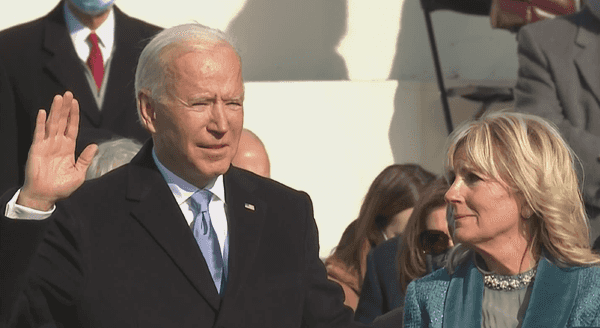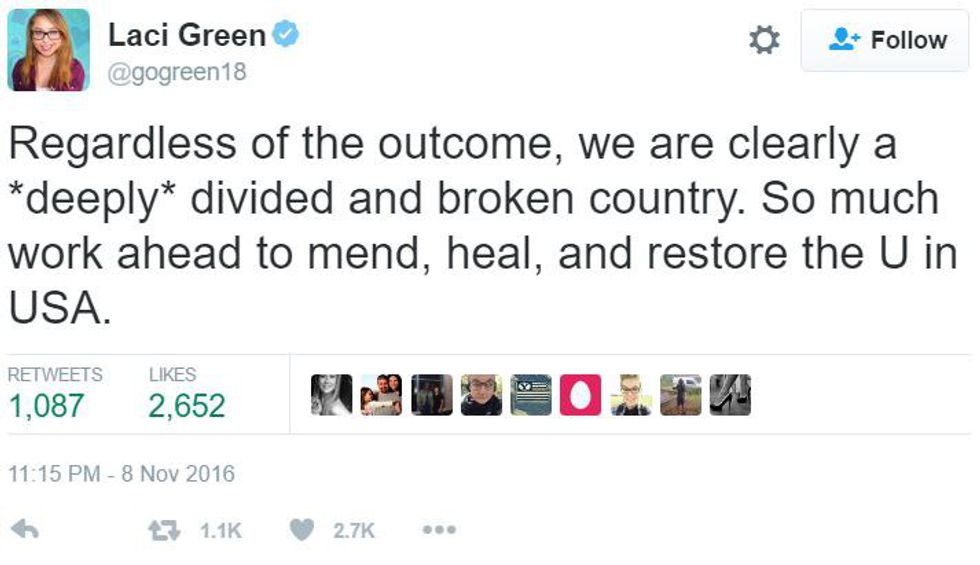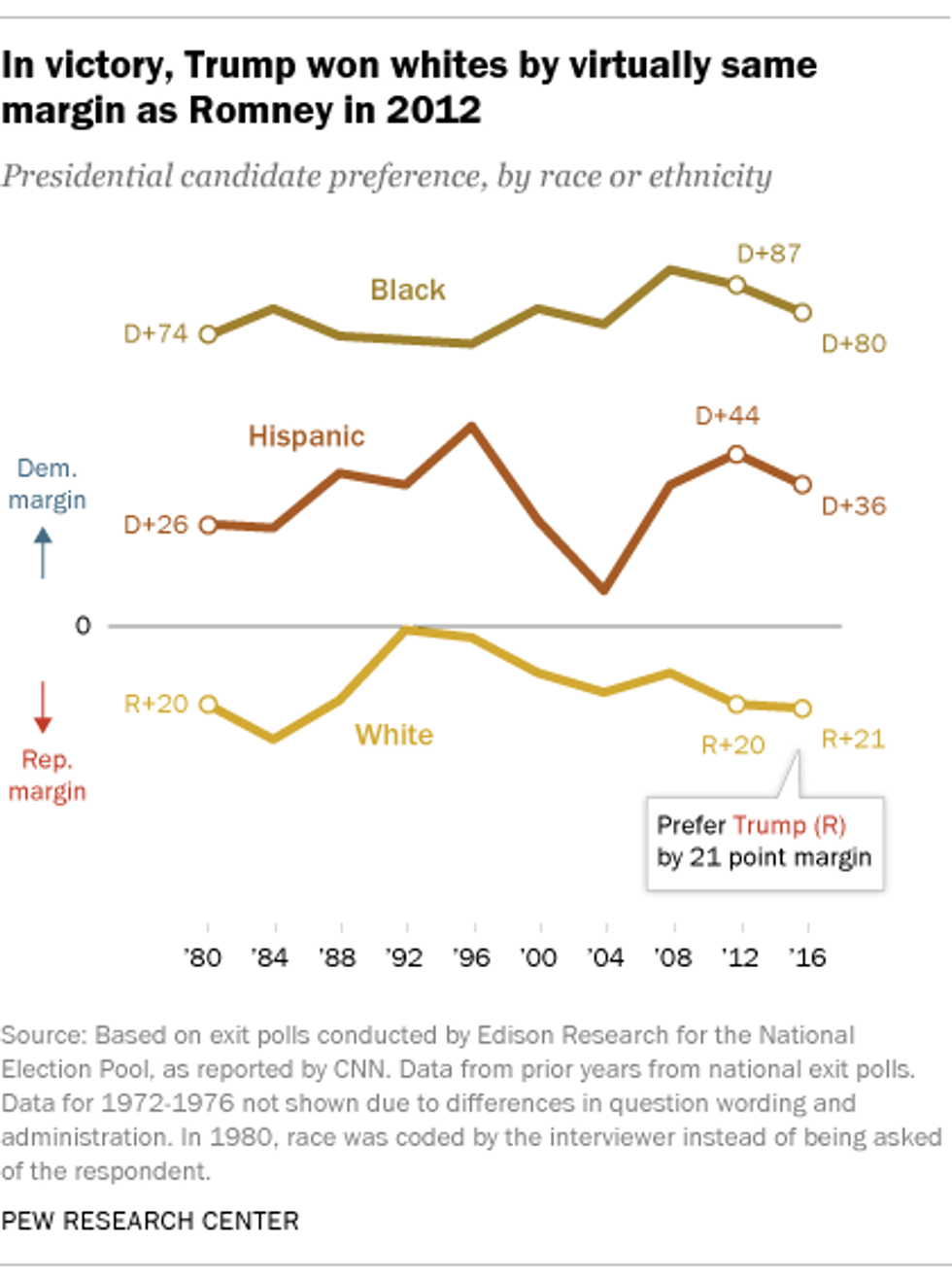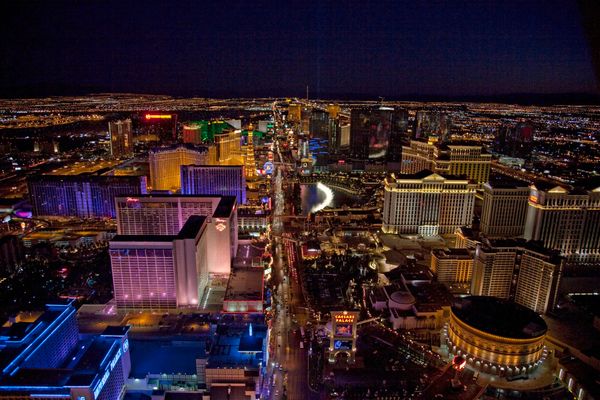Divided America.
Think about those two words for a moment. If you're like me, the immediate images that come to mind are of grave times in American history, snapshots in our chronology that literally cleaved the American people in two. Look at eras like the Civil War, the Civil Rights Movement, the Vietnam War, the AIDS crisis. The images elicited from simply mentioning these moments, to me, are of hostility and mutual misunderstanding and distaste.
But what these events share is their political nature. Regardless of whether the epicenter of the issue was political, what resulted was an ideological conflict that split families and damaged relationships and, what was worse, sometimes led to intergroup violence and conflict.
Sound familiar?
With Thanksgiving just around the corner, I am currently envisioning a family at the dinner table viciously debating political beliefs, often with one or two people being surrounded by an aggressive mob of family members who froth at the mouth over a simple difference of ideas. I know I have not experienced it, but I have heard the horror stories.
Yet for some reason, Americans right now seem to think literally everywhere is a Thanksgiving table to ravenously argue over. As we all know by now, Donald Trump was recently designated President-Elect of the United States. Now, I, regrettably, watched the entirety of CNN's coverage of the election. The moment I saw that Trump took Ohio, I knew he had won. It was shocking to not only me but everyone around me. I know this because I must have heard millions of profanity-laden comments about how Trump was going to win, panicked declarations of America's impending doom. But then he won.
Since the election concluded, protests around the country have been raging constantly. Screaming "not my president," several individually-organized protests speaking out against our current President-Elect have not stopped.
Anti-Trump demonstrators say nationwide protests are ‘just a taste of things to come’.
The above citation is to a Washington Post article that summarizes the issue. But what concerns me is that these protests have boiled over. Look to Portland, for example, where the riots grew so violent that Portland's Resistance—the group that organized the protests two days after Trump was elected—had to start a GoFundMe page to help compensate for damages.
I recognize that not all of the protests have escalated this far. But it is not the protests themselves that are extremely problematic to me, it is the underlying attitudes. I recently wrote that the whole "literally shaking" thing was a summary of the liberal reaction to Trump's victory. The reason why such histrionic reactions were almost universal among the defeated Democratic voters is a result of the vehement attitudes they express towards Trump and his supporters.
That last article I wrote has, ironically, come full circle for me. I decided that I would do some research and look through the videos and Twitter accounts of various internet/real life celebrities, and I, admittedly, was actually shaking out of anger. The people who are complaining about Trump winning the election the most ended up being the most irrational of the bunch, which, unfortunately, were the most widely-seen.
Prominent feminist Laci Green is a prime example of this. Within the span of fewer than four hours, her tweets go from a literal desire for unity to a hateful and, quite frankly, factually inaccurate declaration of everything that is "wrong" with America. Green has over 216 thousand followers at the moment. While I am certain that not all of them saw this, it still does not convey a good lesson to your followers when you backpedal on your message of unity and then all-out alienate 25% of the voting bloc.
I got angry at this point because people do not realize that this petulance is the very reason that Trump got into office. Trump did not divide America, you did. You did when you call his supporters all racists and sexists and homophobes and xenophobes when they are not. Agenda surpasses fact and your emotions got the better of you. Sure, you have plenty of the stereotypes. But they do not represent the whole of the movement. There are, as a close friend puts it, the white, upper-class college students who vote for Trump so daddy can make more money. But there are also the lower-class voters who feel like the Democratic party has failed them in its attempt to address their issues.
Who knew that they are not the only ones.
To those who ignore this and think all of Trump's supporters are racist, look at this graph. The last two dots on the graph are the 2012 and 2016 elections. Guess what: Trump got a higher percent of the minority vote than Romney, yet only 1% more white votes. What does that mean? It means racial minorities won Trump the election. Would such a significant number of people who would obviously be affected quite negatively by a racist president actually vote for him? I know I wouldn't. All I am trying to say here is that intolerance in the name of tolerance is the most regressive thing a social movement can do. And the more you do it, the more you will divide America.
So, to my fellow liberals in America, resist the temptation to let your emotions govern your reality. Trump does not mean the end of the world is nigh. I would even assert that his rhetoric has lost much of its turbulence, as he has not only okay with the legalization of same-sex marriage, his border wall idea is kind of crumbling right now. Just like all presidents do, he will not keep his promises. So we need to stay unified, for if we have a chance of truly making Hindsight 2020 a thing, we have to make sure that the progressive mindset of getting rid of hate actually happens. After all, we all know what Nietzsche said about what happens when one looks into the abyss.
























